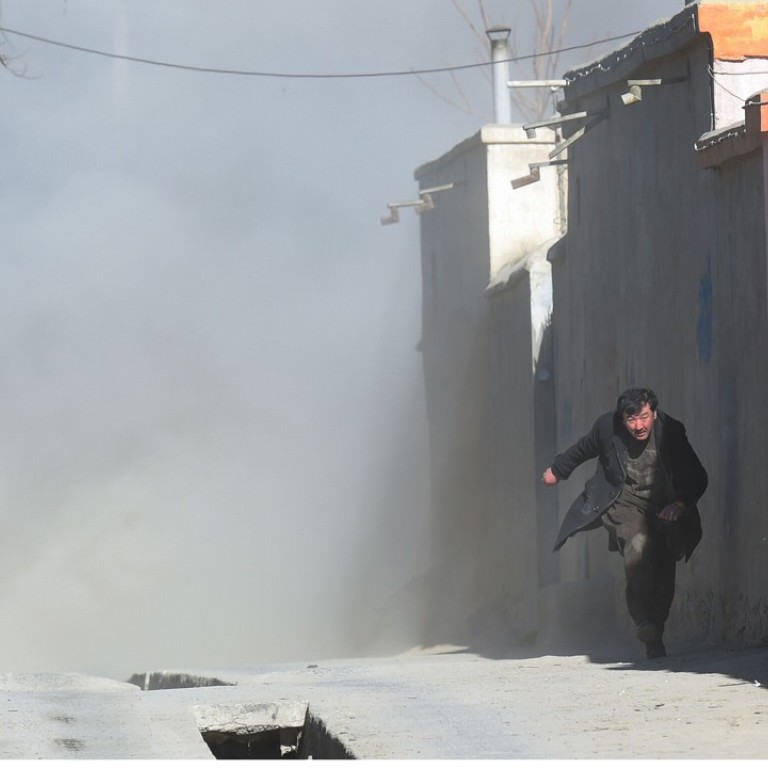
More than 40 dead and scores wounded in attack by Islamic State on Shiite centre in Kabul
A suicide blast at a gathering inside a Shiite cultural centre killed more than 40 people and injured dozens more in the Afghan capital on Thursday in the latest sign of rising violence in the city.
Hospital officials and residents said the toll from the explosions– in the compound of the Afghan Voice news agency in a Shiite-dominated part of Kabul – could increase.
Islamic State claimed it carried out the attack, according to a statement on the group’s Amaq News Agency. It said a suicide bomber detonated one blast, which was followed by three other explosions.
Deputy interior ministry spokesman Nasrat Rahimi said the attack – the deadliest since a Shiite mosque bombing in October that killed more than 50 worshippers – was aimed at the Tabayan cultural centre in the west of the city.
Rahimi said the attack was followed by two smaller bomb blasts as victims and survivors were leaving the scene.
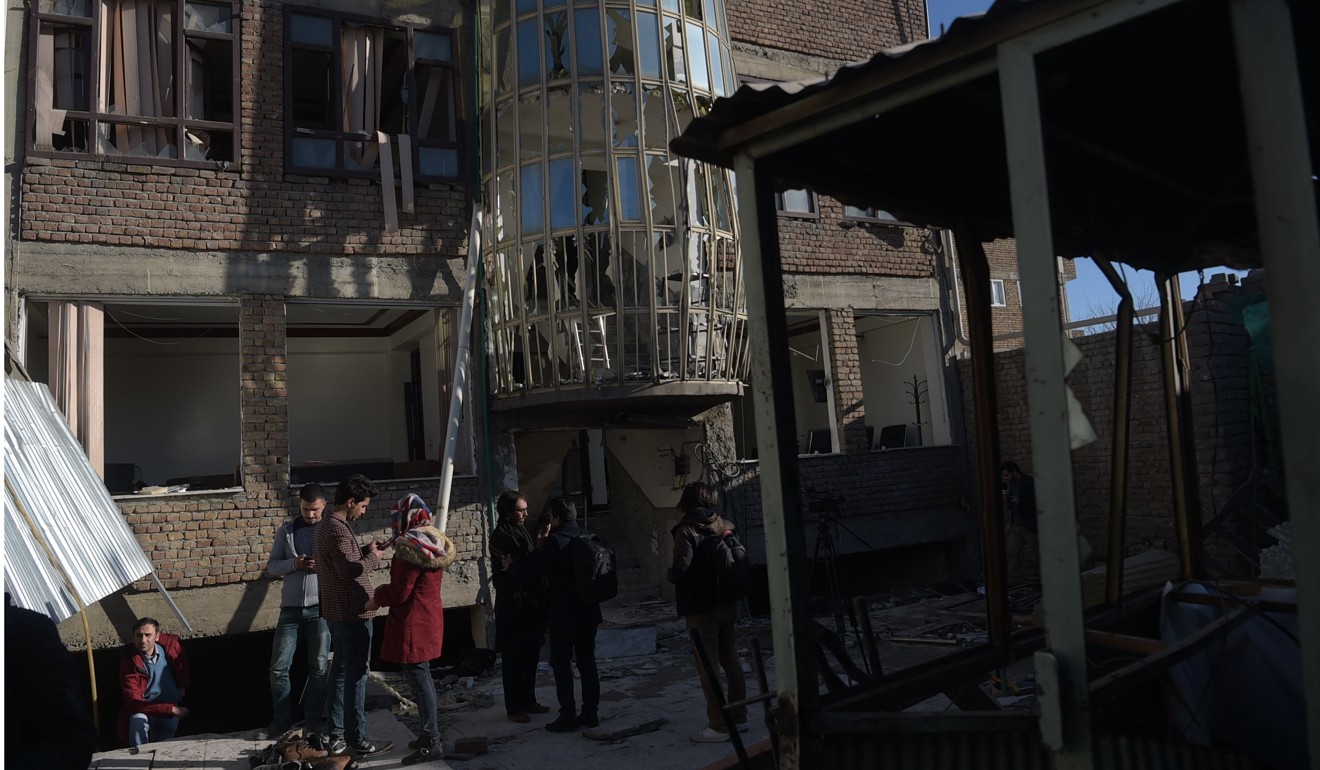
“The suicide attacker detonated himself during a gathering at Tabayan cultural centre causing a lot of casualties,” Rahimi said.
Islamic State has waged a series of attacks in Kabul and has targeted Shiite Muslims, which the militants consider a heretic branch of Islam.
Earlier, the Taliban denied any role in the carnage – which served as another reminder of security shortfalls in Kabul and elsewhere even as Afghanistan and the US claim progress against militant factions.
Up to 100 people had gathered at the centre in western Kabul to mark the 38th anniversary of the Soviet invasion of Afghanistan. The centre is also the same building as affiliated Afghan Voice Agency (AVA), an anti-IS media outlet, a number of their staff among the victims.
Waheed Majroh, spokesman for the public health ministry, said the blasts killed at least 41 people and left 84 injured. One government official, speaking on condition of anonymity, put the number of those killed at more than 50, adding 100 were hurt.
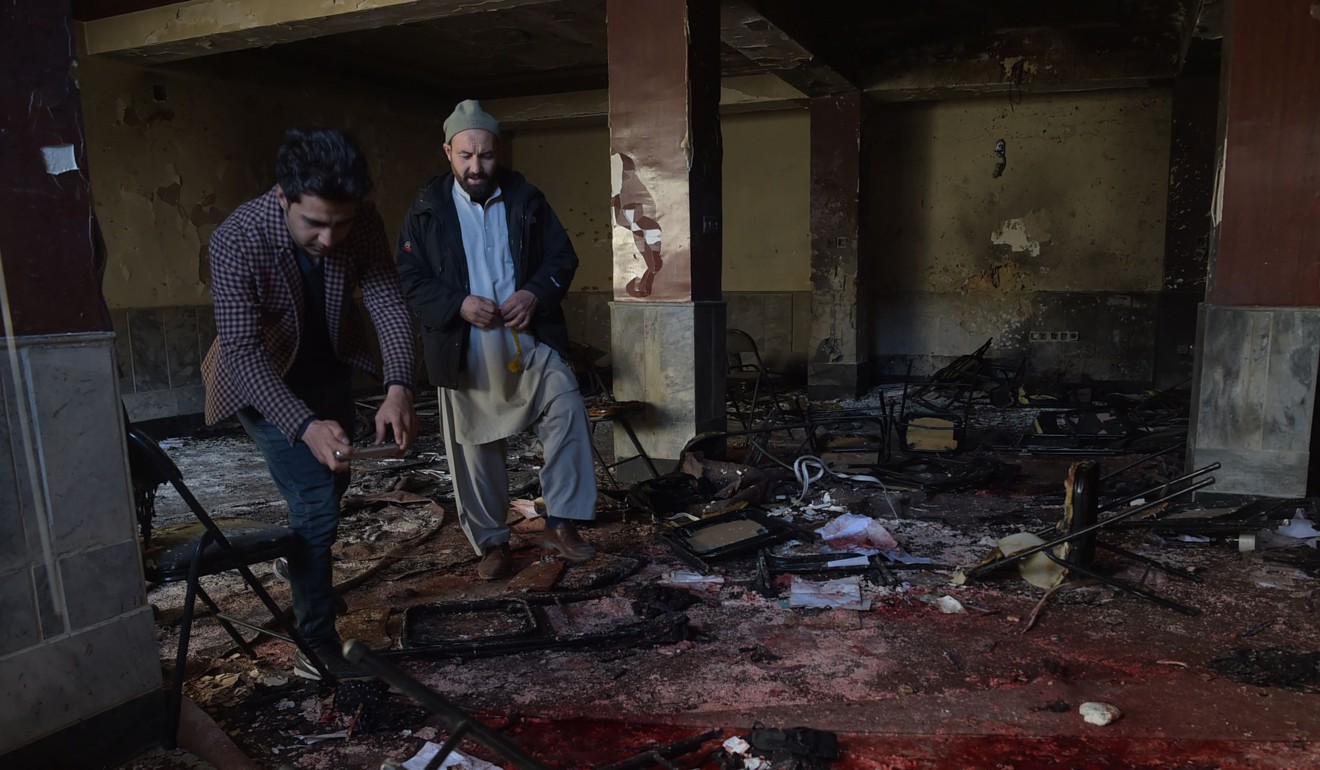
Kabul has become one of the deadliest places in war-torn Afghanistan for civilians in recent months, as the Taliban step up their attacks and IS seeks to expand its presence in the country.
Thursday’s attack saw chaotic scenes at the Istiqlal hospital where ambulances and police pickups brought victims, including women and children. Many of them had suffered severe burns to their faces and bodies, as well as shrapnel wounds.
Visibly distressed relatives searching for their loved ones in hospital cursed the government for seemingly being unable to end the regular carnage on their streets.
Some were so distraught they crawled on the ground pulling their hair.
More than a dozen badly burned bodies were seen lying on the floor in one room. Wooden coffins being delivered so people could take away the bodies of their relatives.
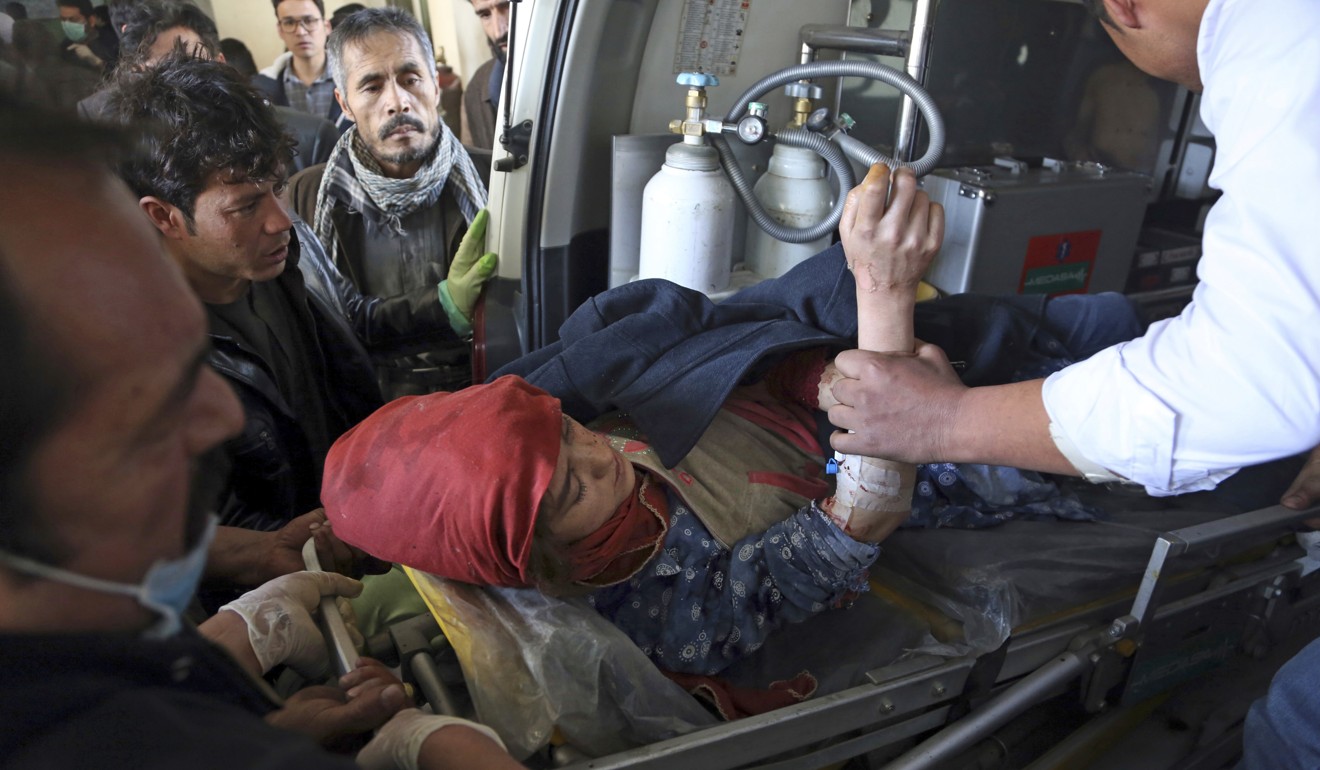
A man attending the anniversary ceremony at Tabayan said he heard a “big boom”.
“We do not know the numbers (of casualties). When the explosion happened we immediately fled,” he told Tolo News.
Mohammad Hasan Rezayee, a university student who was also at the ceremony, told Tolo News he had suffered burns to his face in the blast.
“We were inside the hall in the second row when there was an explosion behind us. I did not see the bomber,” he said from his hospital bed.
Most of the victims were either educated young people or children who took religious classes at the cultural centre, family members of the victims said.
Among them was Said Andleb, who had graduated from university a day earlier. Several journalists were among the wounded, officials said.
“My son, 12 years old, was killed in the attack. My nephew was also there, and he has gone missing,” Ghulam Hussein, a weeping father, told reporters at a hospital.
Saad Mohseni, an Afghan media mogul, said: “these are individuals with hopes and aspirations with family and loved ones … how much pain can a nation take?”
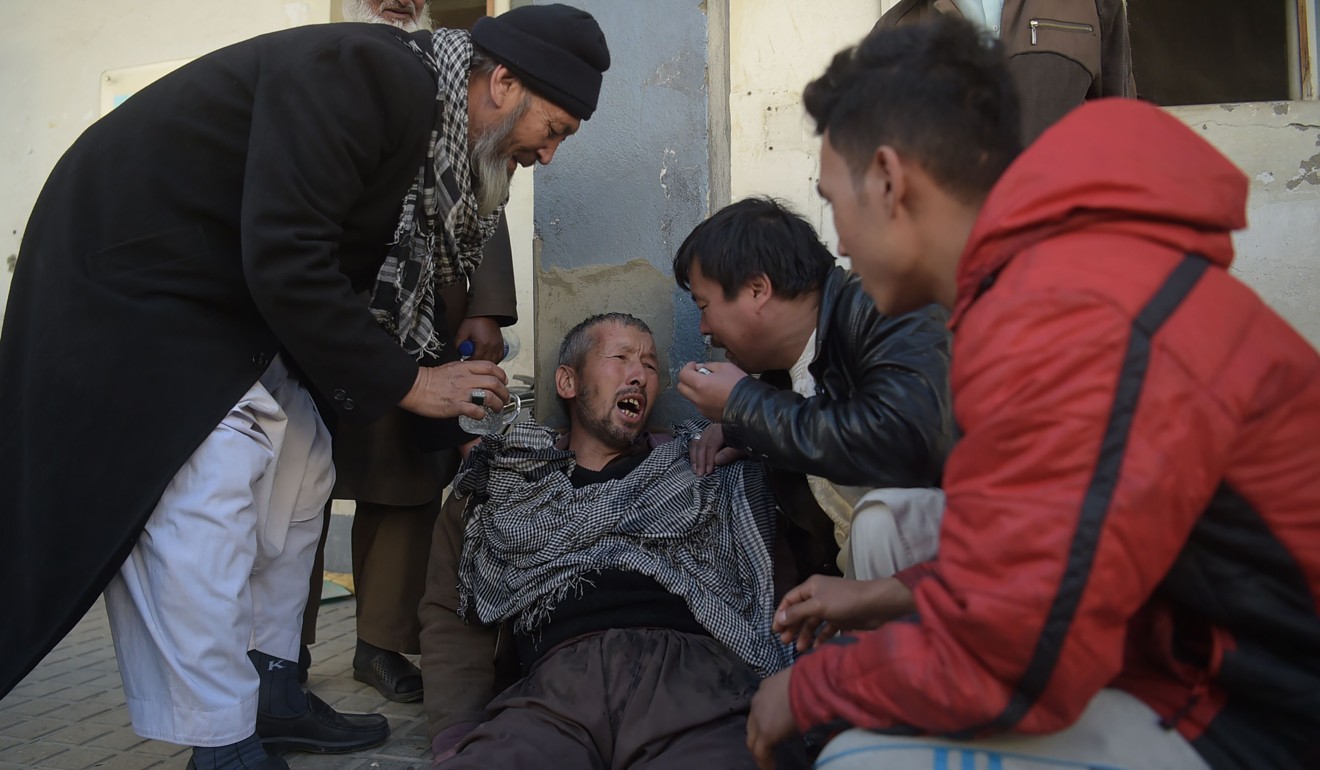
In the face of rising attacks by Islamic State against Shiites, President Ashraf Ghani’s embattled government has recently stepped up security measures for Shiite mosques by providing guns and funds for the community’s protection. The initiatives were arranged by the followers of the sect itself.
Last month, Mohammad Mohaqiq, a leader for one of the Shiite groups in Afghanistan, travelled to Iran and publicly praised Afghan and regional Shiite warriors who had taken part in the war in Iraq and Syria against Islamic State fighters.
The presidential palace said in a statement that Thursday’s attack was a “crime against humanity” and an “unforgivable act.”
The attack comes weeks after Ghani said Islamic State, which emerged in Afghanistan in late 2014, “was on the run” in the country following a recent series of joint offensives with US-led troops.
One of Ghani’s aides, Haroon Chakhansuri, said “the defeated enemies of Afghanistan cannot stop us from having a prosperous country.”
“Such barbaric attacks on civilians will increase public anger toward the enemies and will further strengthen our unity and resolute for having prosperous Afghanistan,” he added.
The attack drew international condemnation, with Nato’s Resolute Support mission in Afghanistan describing it as “heinous”. Amnesty International said it was further evidence that Kabul was not safe.
“The European governments who insist on this dangerous fiction by forcibly returning Afghans are putting their lives in danger,” Amnesty International’s South Asia director Biraj Patnaik said in a statement.
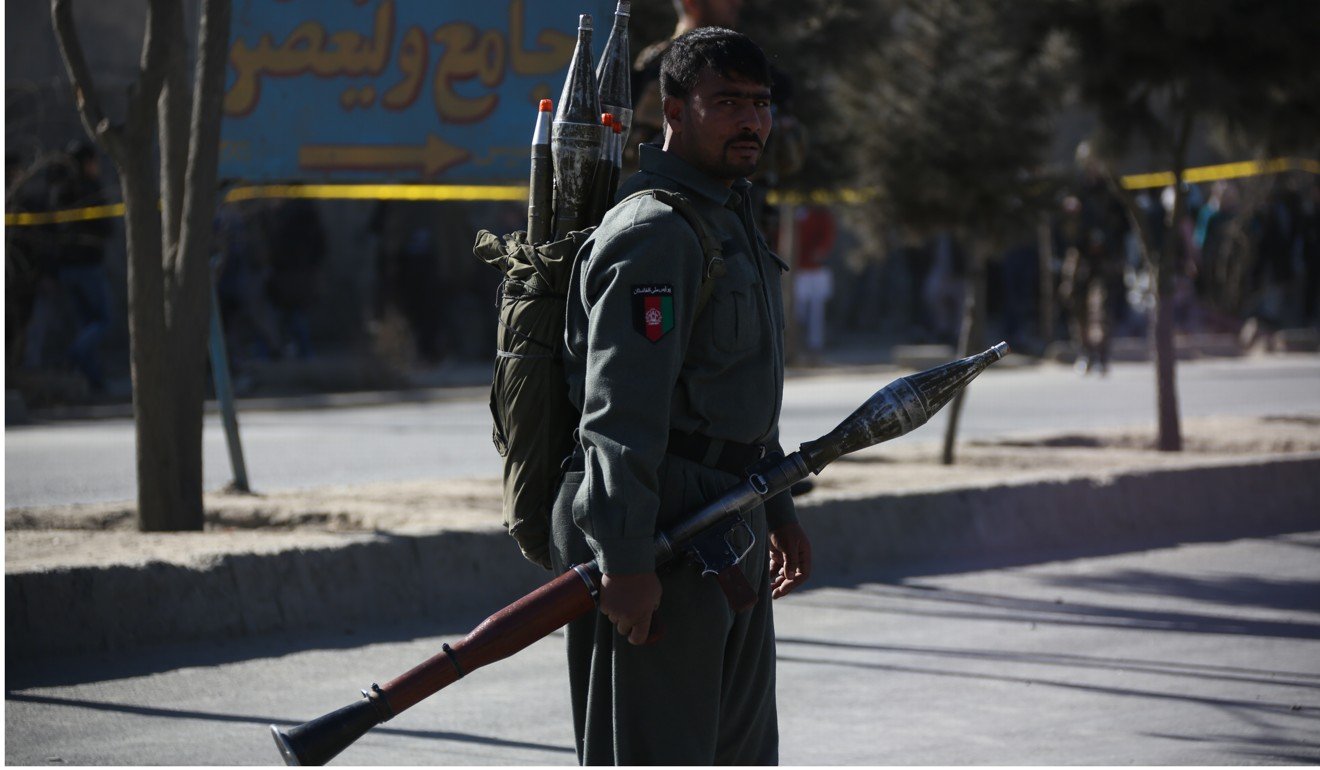
Security has been ramped up since May 31 when a massive truck bomb ripped through the diplomatic quarter, killing some 150 people and wounding around 400 others – mostly civilians. No group has yet claimed that attack.
Religious attacks in Afghanistan have skyrocketed in the past two years with the minority Shiite community the main target, the United Nations said in November.
IS, a Sunni extremist group, has claimed most of the attacks on Shiite worshippers as it seeks to stir up sectarian violence in the country.

.png?itok=arIb17P0)
